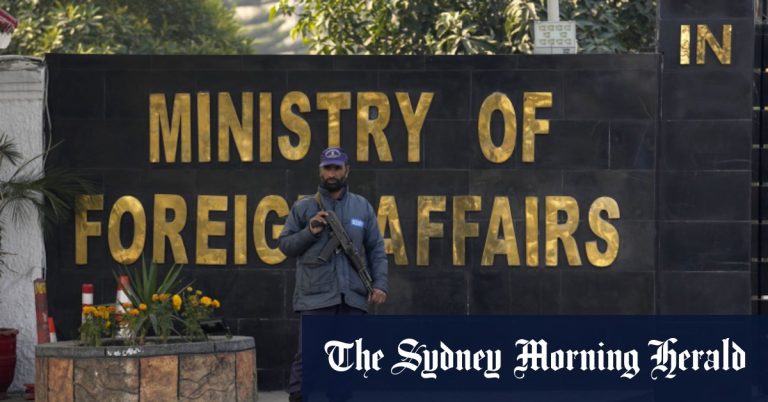It is the largest province in Pakistan in terms of area, but the smallest in terms of population. It is located on the border of the Iranian province of Sistan and Baluchestan, where Pakistan carried out its strikes.
Hundreds of Baloch demonstrators, many of them women, have protested in the Pakistani capital, Islamabad, in recent weeks, leveling accusations of cruel treatment of those in the province, including forced disappearances and extrajudicial killings.
Balochistan is a key location in the massive multi-billion-dollar China-Pakistan Economic Corridor, which is part of President Xi Jinping's Belt and Road Initiative.
China has implemented mining projects and built an international airport and port in the coastal town of Gwadar in the south of the province.
Canadian mining company Barrick Gold owns a 50 percent stake in the Reko Dik mine in the Chagai district of the province, while the Pakistani government and the province own the rest. The Barrick mine is considered one of the world's largest copper and gold backwaters.
download
What is the relationship between the war between Israel and Hamas in Gaza?
Iran supports Hamas, which rules the Gaza Strip, and is designated as a terrorist group in Australia, the United States, the United Kingdom and the European Union, as well as other rebel groups that act as its agents. This includes the Houthis in Yemen and Hezbollah in Lebanon. Tensions resulting from the Gaza war have already included skirmishes between Israel and Hezbollah on the Lebanese border and targeted assassinations inside Lebanon.
In addition, the Houthis have disrupted maritime trade in the Red Sea, they say, in support of Hamas and against Israel, Iran's arch enemy. Their campaign began in November, when they claimed to be targeting ships linked to Israel. It has since targeted ships not linked to Israel and has been the target of US and British strikes in Yemen. The United States says its strikes, now in their fourth round, are aimed at protecting international shipping trade. Military action emerging from the Red Sea has heightened concerns about Iran's possible further involvement in the war and the potential for the conflict to spread.
This week, Iran launched air strikes in Syria and Iraq, and then on Pakistan, prompting Pakistan to respond with a retaliatory strike on Thursday. It claims it was carried out in the name of national security.
download
The fear is that more fighting in the Middle East could draw the United States, Israel and Iran into direct combat, although the players appear to be taking carefully calculated steps to avoid doing so. the The New York Times Reports indicate that after 100 days of conflict, the assessment of most major players is that Iran is pushing its proxies to make trouble for the US military and to pressure Israel and the West where it can — Iraq, Syria, Lebanon and the Red Sea — while not provoking a larger eruption.
Reuters, staff reporter
Get a direct note from our foreigners Reporters About what's making headlines around the world. Subscribe to our weekly “What in the World” newsletter..


